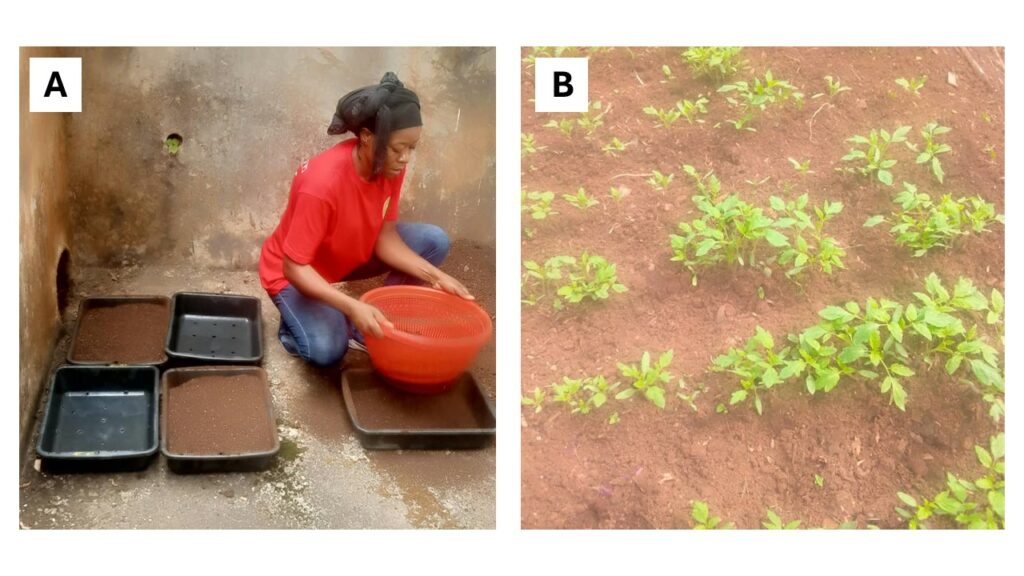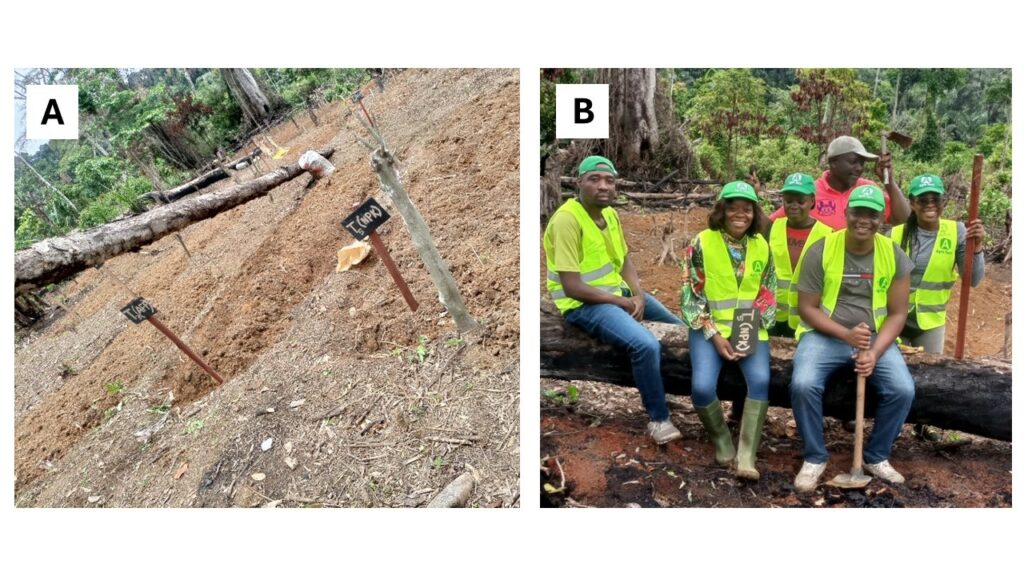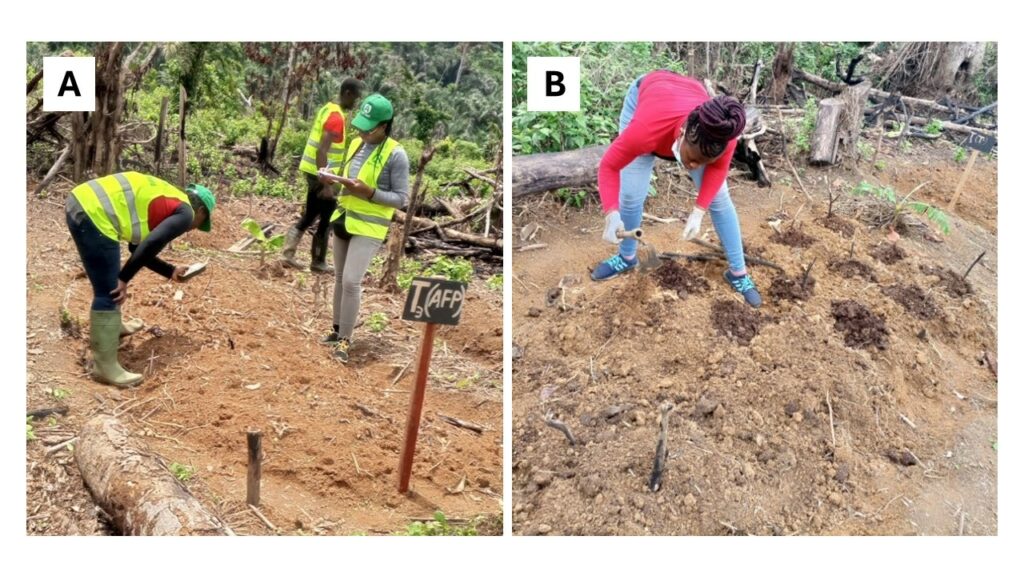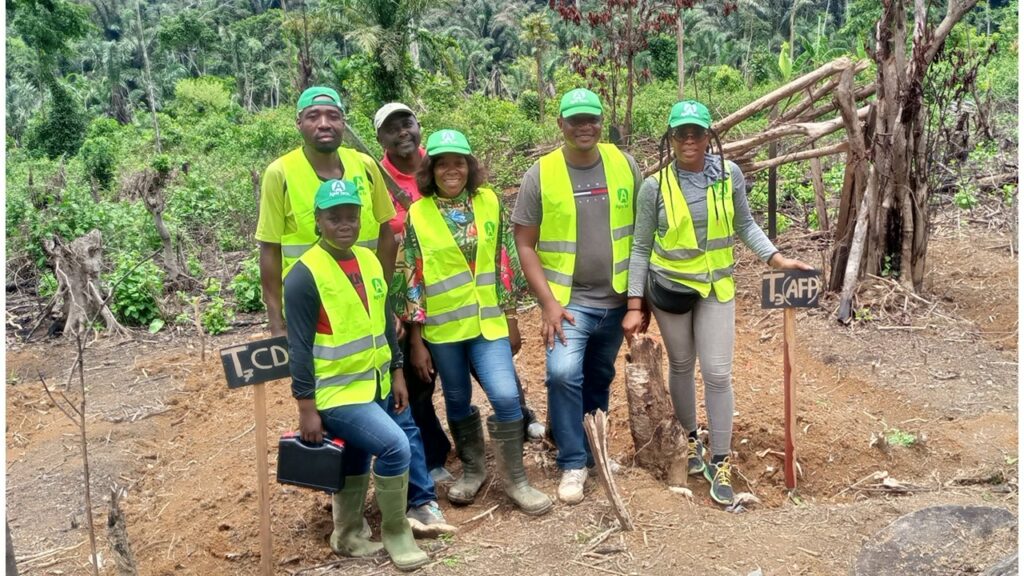Originally from Latin America, tomato (Lycopersicon esculentum) is probably one of the most widely grown crops in vegetable gardens today. In any case, it is the most consumed vegetable or fruit in the world. It is one of the most cultivated seasonal crops in Cameroon to supply the entire Central African sub-region. Therefore, tomato cultivation is one of the main sources of income for farmers. Tomatoes are grown all year round, but the best yields of commercial fruits are obtained during the dry season (less attacked by diseases). However, in Cameroon, it is more cultivated in the rainy season because it is very sensitive to drought and the majority of farmers do not have irrigation systems. Tomato plants are very prone to disease, require a lot of chemical fertilizer and special monitoring.
As part of the Nestler project whose objectives are to integrate interdisciplinary technological advances to effectively monitor the well-being of animals, plants and humans, adopting a holistic approach; the company Agrix Tech based in Cameroon and specializing in precision agriculture is responsible for carrying out a pilot on intelligent tomato cultivation with the use of IoT, intelligent irrigation systems and intelligent management of diseases and pests.
The first agricultural campaign being launched in agro-ecological zones V and III, the first objective which concerns the evaluation of the quality of tomato cultivation using organic fertilizers, IoT devices for recording Weather parameters and soil nutrient analysis is already running.
The two experimental sites having been chosen, the nurseries were set up during the month of March. We made an above-ground nursery and an above-ground nursery (Figure 1 and 2).

We then launched site preparation operations, namely: clearing, cleaning, forming the beds and labeling the plots (Figure 2. A). The experimental design is a completely randomized experimental plan comprising 7 treatments (T1, T2, T3, T4, T5, T6, T7), repeated 3 times. The main factor we have is the amendment (plot amended with chicken droppings, plot amended with cow dung, plot amended with NPK and unamended plot), and the secondary factor is soil analysis (plot analyzed and amended with NPK, plot analyzed and amended with chicken droppings, Plot analyzed and amended with cow dung). All these operations were carried out by our teams and people we employed for certain tasks (Figure 2.B).

Tomato cultivation is demanding in terms of fertilizers, we carried out soil analyzes with KIT soil multi factors recorder in order to provide tomato plants with the quantities of nutrients they exactly need for their growth. (Figure 3.A). For this, the organic fertilizers (chicken droppings and cow dung) were analyzed and after receiving the results, the amendments were made on the different plots according to the results obtained from the soil and fertilizer analyzes (Figure 3. B). The amendments were made at the level of the pockets where the plants will be transplanted. The distance between plants is 0.4cm and between rows 0.8cm.

The Synelixis weather station and soil parameter monotoring device has also been installed at the experiment site (Figure 4) and the transplantation of tomato plants from the nursery to the field will take place in the coming days. The rest of the activities will be carried out respecting the stage of development of the plant. Data will be collected as the work progresses.

Potential benefits of the pilot project include a reduction in the use of chemical pesticides in favor of organic fertilizers and the sustainable use of chemical and/or organic fertilizers through soil testing. The results will enable sustainable crop management, better yield prediction, tailored support and recommendations, resource efficiency, knowledge sharing, improved farmers’ lives and economic and environmental benefits.
Through the NESTLER Project, tomato farmers in Cameroon and the sub-region will now be able to: implement sustainable production systems, increase their production without increasing the size of plantations and finally use organic fertilizers to the detriment of chemical fertilizers.

